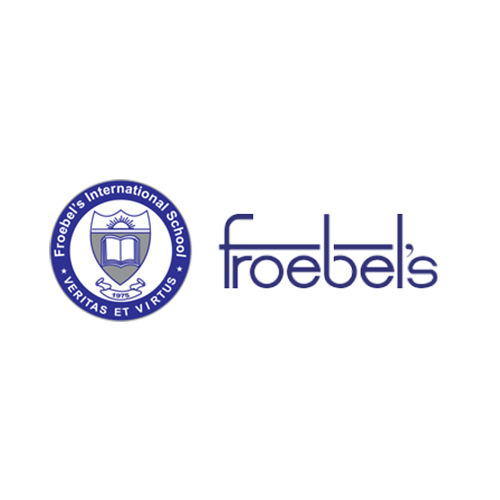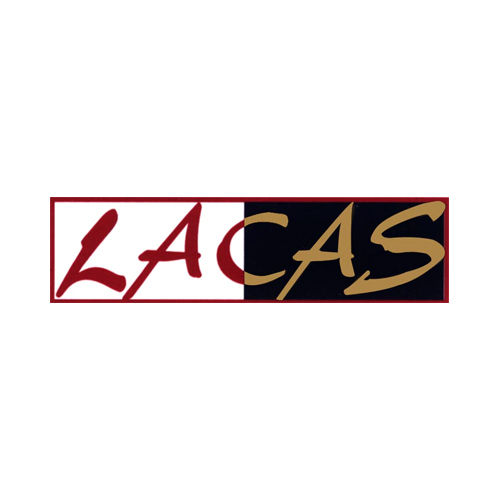We help students like you get your best
TOEFL® and IELTS® score
Not in Lahore? Sign-up for ONLINE IELTS & TOEFL classes instead
Online IELTS/TOEFL prep

Why choose Tutoria for IELTS/TOEFL Preparation
Continuous Learning
We empower and enable you in your academic life as well as your professional one. We want you to feel confident every time you walk into a job interview, communicate with a stranger or give a presentation. The ease of your day-to-day encounters is at the heart of all our IELTS and TOEFL coaching.
No-cramming Policy
At Tutoria, we believe religiously in making each and every second of your time count, which means you’ll be developing critical thinking and problem solving skills crucial to ace these tests and won’t ever have to mug up anything.
Trusted Curriculum
Our manuals consist of handpicked questions, which have helped thousands of students achieve their dream scores and perfect their IELTS and TOEFL preparation. Our affiliations with exam boards give us and you exclusive access to practice material which is otherwise available only to examiners.
Digital Classrooms
We employ the latest technology to make sure our students have access to resources absolutely everywhere. Assignments and quizzes are posted on Edmodo, an online educational platform, to ensure ease of accessibility.
Trusted Curriculum
Our manuals consist of handpicked questions, which have helped thousands of students achieve their dream scores and perfect their IELTS and TOEFL preparation. Our affiliations with exam boards give us and you exclusive access to practice material which is otherwise available only to examiners.
Learning by Doing
We’ve done our research, so you don’t have to face a single hurdle in mastering the art of taking exams. We take immense pride in using the “learning by doing” methodology and have put ample practice material to the test, prior to opening our doors to you.
About IELTS and TOEFL
These tests measure the ability of non-native English speakers to use and understand the English language as it is heard, spoken, read and written in the university classroom or a country where the first language is English. The tests help you gauge where you are at in terms of your English proficiency.
Course will be taught in English. The candidate will be required to speak in English throughout the duration of this course, helping them perfect their IELTS and TOEFL general preparation.

-
What is the digital SAT?College Board, the maker of the SAT, is introducing changes to both the content of the test and how the test is administered in order to better fit the needs of students and educators. Most notably, the test will transition from being taken with paper and pencil to being administered via a digital assessment platform accessed by computer. While the transition to digital will bring a number of student- and educator-friendly changes, many important features of the SAT will stay the same. The SAT will continue to measure the knowledge and skills students are learning in school that matter most for college and career readiness. The digital SAT isn’t simply a digital version of the current paper and pencil test — it will be easier to take, more secure, and more relevant.
-
What is the format of digital SAT?
-
What is the difference between the digital SAT and the paper-and-pencil test?Changes have been made to both sections of the SAT in the digital version. These changes are outlined below. Digital SAT Math: Calculator use: Calculators are now allowed throughout the entire Math section. A graphing calculator is integrated into the digital test experience so that all students have access. Question word count: The average length of Math word problems has been reduced. In-context questions are still a big part of the test, but they’re not quite so wordy. Digital SAT Reading and Writing: One test for Reading and Writing: While the pencil-and-paper SAT tested reading and writing in separate test sections, the digital SAT combines these topics. Shorter passages (and more of them): Instead of reading long passages and answering multiple questions on each passage, students taking the digital SAT will encounter shorter passages, each with just one follow-up question. New question types: With a greater number and variety of passages, the digital SAT includes new types of questions, with new prompts that require new strategies.
-
What is included in the Reading and Writing section of the digital SAT?The Reading and Writing section of the digital SAT is designed to test students on reading comprehension, rhetoric, and language use by having students engage with academic and literary texts. Skills on the Reading and Writing test can be split into the following four categories: Information and Ideas: Use, locate, interpret, and evaluate information from various texts and infographics. Craft and Structure: Determine the meaning of high-utility academic words and phrases in context, evaluate texts rhetorically, and make supportable connections between multiple related texts. Expression of Ideas: Use revision skills and knowledge to improve the effectiveness of written expression in order to accomplish specified rhetorical goals. Standard English Conventions: Use editing skills and knowledge to make texts conform to core conventions of Standard English sentence structure, usage, and punctuation.
-
What is included in the Math section of the digital SAT?The Math section of the digital SAT is designed to test students on the math topics that are most important for college and career success. Those topics can be split into the following four categories: Algebra: Analyze, fluently solve, and create linear equations and inequalities, as well as analyze and fluently solve systems of equations. Advanced Math: Demonstrate attainment of skills and knowledge central for successful progression to more advanced math courses, including analyzing, fluently solving, interpreting, and creating a variety of equation types. Problem-Solving and Data Analysis: Apply quantitative reasoning about ratios, rates, and proportional relationships; understand and apply units and rates; and analyze and interpret one- and two-variable data. Geometry and Trigonometry: Solve problems that focus on perimeter, area, and volume; angles, triangles, and trigonometry; and circles. Questions on the digital SAT Math test come in two formats: Multiple-choice: Questions offer four possible choices from which students must select the answer. Student-produced response: Questions require students to produce their own answer, which they then enter into the provided field.
-
How should I start studying for the digital SAT?Use our comprehensive portal (Afterschool) for your practice: you will get an aple question bank exploring the different types of SAT questions, learning strategies for answering those questions, and practicing the skills those questions test. The best way to practice individual skills is to explore both the digital SAT Math course and the digital SAT Reading and Writing courses on our portal. In these courses, you can watch videos, go through byte-sized notes and ample practice material related to each topic.
What will you learn?
What will you learn?
Week 01
-
Introduction to IELTS, overview and general discussion on the exam pattern
-
Reading: Passage 1
-
Writing: Interpreting Data
-
Speaking: about interests
-
Listening: QuestionTypes
-
Sub skills: comparing and contrasting; academic style; academic vocabulary
-
Wednesday – IELTS Test 1
Week 04
-
Reading: Passage 4
-
Writing Task 3
-
Speaking: Speaking about problems; describing places
-
Listening: Audio 3
-
Sub skills: Reflective learning
-
Wednesday – IELTS Test 3
Week 07
-
Reading: Passage 7
-
Writing Task 5
-
Speaking: Speaking about problems; describing places
-
Listening: Audio 6
-
Sub skills: Reflective learning
-
Wednesday – IELTS Test 5
Week 02
-
Reading: Passage 2
-
Writing Task 1
-
Speaking: Speaking about problems; describing places
-
Listening: Audio 1
-
Sub skills: Reflective learning
-
Wednesday – IELTS Test 2
Week 05
-
Reading: Passage 5
-
Writing Task 4
-
Speaking: Speaking about problems; describing places
-
Listening: Audio 4
-
Sub skills: Reflective learning
-
Wednesday – IELTS Test 4
Week 08
-
Reading: Passage 7
-
Writing Task 7
-
Speaking: Speaking about problems; describing places
-
Listening: Audio 7
-
Sub skills: Reflective learning
-
Wednesday – IELTS Test 6
Week 03
-
Reading: Passage 3
-
Writing Task 2
-
Speaking: Speaking about problems; describing places
-
Listening: Audio 2
-
Sub skills: Reflective learning
-
Wednesday – IELTS Test 2
Week 06
-
Reading: Passage 6
-
Writing Task 5
-
Speaking: Speaking about problems; describing places
-
Listening: Audio 5
-
Sub skills: Reflective learning
-
Wednesday – IELTS Test 4
Take-aways from the course
-
Improve your IELTS and TOEFL score
-
Be confident in speaking in English in their day to day lives
-
Be able to better understand instructions given in English
-
Comprehend an in-depth understanding of Admissions Process for Undergraduate and Graduate Level studies throughout the World
-
Students will be prepared to handle interviews for their University/Jobs etc.
Course highlights
-
Inspiring and Engaging classes
-
“Learning by Doing” teaching methodology
-
Online Assignments and Quizzes
-
No Need to Purchase Extra Prep Books
-
Private One-on-One for Everyone
-
Guaranteed Money-back if no improvement in score
-
Writing – It tests your grammar, punctuation and rhetorical skills which you have already covered in middle school, if not earlier.
-
Reading – It tests your simple comprehension skills. If you are an avid reader, you have got this section on lock.
-
Math – Simple Arithmetic, Algebra and Geometry with focus on Equations on Word Problems. It’s simple Math!
-
Essay – Analyze a 600-700 word passage and how the author built his or her argument.
Digital Classroom for Millennials
We leverage smart technology to collaborate with students online and post assignments and quizzes that are electronically submitted by students and automatically graded.
Students can access their files 24/7 through their cloud-based ‘Library’.
A message board allows secure and open communication that is monitored and controlled by the teacher.

Partner Schools












